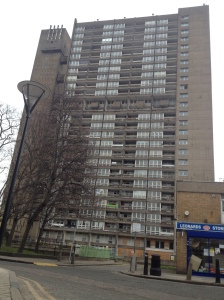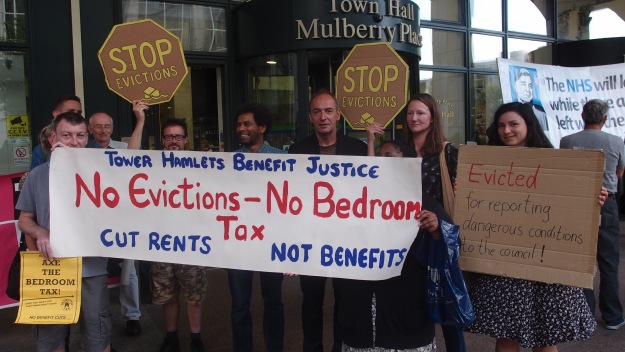TH Council agreed to implement a landlord licensing scheme in three wards at its cabinet meeting last night.
All private landlords in Whitechapel, Weavers and Spitalfields and Banglatown – based on their pre-May boundaries – will be obliged to be licensed and meet its conditions from – it’s hoped – October.
The annual fee and exact conditions that must be met are yet to be agreed.
Licensing is aimed at improving the conditions of private rented properties, their management and to tackle so-called anti-social behaviour.
In Newham it has been successfully implemented since January 2013 and the borough now prosecutes more landlords than the rest of London combined.
Unfortunately the scheme is only being implemented in three Tower Hamlets wards after the Coalition government limited Selective licensing to a maximum 20% of a borough shortly before the election last year after intense lobbying by the National Landlords Association. Permission must be sought from the Department for Communities and Local Government before extending the scheme to become borough-wide, but recently blocked Barking and Dagenham’s request to do so.
However, Additional licensing, which only covers houses in multiple occupation (HMOs) – as opposed to HMOs and single family households that Selective covers – is not restricted and the council agreed to look into consulting on implementing it once the government finishes its own consultations on extending mandatory licensing to a greater number of HMOs. Legislation already covers HMOs with five rooms, three or more floors, and two or more households.
However, if it decides to act, the government is expected to implement a diluted version of Additional licensing that would not, for example, cover flats.
The key protections that licensing offers tenants is that the license becomes invalid if any of the conditions are breached rendering the landlord liable to a fine of up to £20,000 and unable to issue a S21 eviction notice.
The decision comes more than six months after the consultation was completed last summer following mayoral elections and a change in administration.
The council said that one of its problems in dealing with the private rental sector is that it relies on tenants reporting poor conditions and reacting to them with limited resources.
Licensing puts the onus on landlords to meet certain conditions and face penalties if it breaks them.
Some of the conditions that must be met include: carrying out repairs, particularly to furniture, fittings and electrical appliances, fitting and maintaining working smoke alarms and having an up-to-date gas certificate. However, each tenant will also be obliged to provide a reference.
In its report to cabinet, the council stated it would also use licensing to identify landlords of the approximate 1,500 empty properties in the borough and encourage their owners to bring them back into use.
It also said it would employ additional staff for its under-resourced environmental health team to carry out house inspections.


